#IndustryNews
No Friends in the Renault-Nissan Alliance?
Former Renault-Nissan Alliance director Arnaud Deboeuf is leaving Renault to chase sunnier pursuits at French rival PSA. It’s no secret that the relationship between Nissan and Renault has become severely strained, however, Deboeuf’s departure throws more light on how personal issues are impacting the broader business. He effectively blamed Renault CEO Thierry Bolloré for his leaving the alliance.
“Thierry Bolloré told me no one wanted to work with me … and that I could not go to work at Nissan either,” Deboeuf explained in a final letter to his colleges.
China Making Moves to Improve Its Crippled Auto Market
While you’ve heard the media prophesying a global recession for months now, one that will effectively obliterate the younger generation’s purchasing power for the rest of their lives ( or so they say), the United States is actually in relatively good shape vs other markets. The People’s Republic of China already appears to be in a recession, and it’s no state secret that its automotive market is hurting.
Part of that is due to the ongoing Sino-American trade war, but there are other factors at play. We’ve previously covered how China’s overzealous adoption of increasingly rigid efficiency mandates upset auto sales. As it turned out, the nation’s commitment to zero-emission vehicles and swelling emission rules scared off a subset of buyers. Others simply couldn’t rationalize making such a large purchase during a period of economic uncertainty.
This all resulted in China’s automotive market experiencing more than a full year of consistently negative growth — something the PRC would like to see fixed posthaste. On Tuesday, the Chinese State Council announced a tentative plan to fix its struggling economy.
Why Is Nio Struggling?
Nio, one of China’s biggest EV startups, is confronting difficult times, though the primary reasons for its plight are less than obvious. Automotive startups have a low survival rate, but Nio was presumed to be the next big thing in vehicular electrification. It looked poised to become one of the few EV companies that would survive in Asia, likely serving as China’s response to Tesla, and even had a successful Formula E racing team to showcase its engineering might.
We sad had because Nio sold that team this year. It also needed to recall 4,800 vehicles after reports of three catching fire, endured a sizable sales drop, witnessed its share price plummet, announced plans to layoff 10 percent of its workforce, and just lost one of its co-founders.
Ford and GM Prep for Economic Hardship
With another global recession looming on the horizon, executives at General Motors and Ford are busy touting the merits of being prepared. On Tuesday, the financial heads of both automakers were present at a J.P. Morgan Conference in New York to explain the steps being taking to mitigate economic disaster.
While financial hardship is not yet a guarantee for the United States, the ongoing trade war with China has impacted the cost of doing global business. Likewise, most sizable automotive markets are either underperforming or have surpassed peak growth levels. Depending upon the severity of the anticipated recession, GM claims its “downturn planning” could include postponing non-essential capital expenditures and shifting toward lower-priced automobiles.
The Hunt For BMW's New CEO Begins [UPDATE: That Was Fast!]
With Harald Krüger out, BMW needs a new CEO — one that can effectively transition the company into becoming and electrified automotive dreamscape. Krüger presumably wasn’t interested in taking that path. While that hardly makes him a monster, plenty of people felt that his reluctance to spend ludicrous amounts of money on developing EVs was tanking the company’s share price and making him look like a fool. Not us, though. Bending to investors every whim and chasing down trends with minimal foresight seems like top-tier dipshittery. But that’s the nature of the industry right now, for better or worse.
However, in the short term, it pays to promote electrification and Krüger’s measured strategy of gradually introducing more EVs via a flexible architecture was often seen as too conservative. Perhaps that’s the correct assertion and some new blood is in order at BMW if it’s to correct its course. But who do you pick?
Tesla Memo Suggest Production Boost Incoming
After posting a stinker of a first quarter, Tesla entered into a training montage and managed record-setting production output in Q2 — helping nudge its all-important share price back in the right direction.
Now, internal documents have shown the automaker is trying to position itself to further boost production at its California factory and might even bring some new staff on board. Question the legitimacy of this “leak” if you must, but that won’t change Tesla’s ultimate goal of more volume and happier investors in Q3.
Toyota Building New SUV in Alabama, Not the Corolla
Toyota Motor Corp announced on Wednesday it would be building a new sport utility vehicle at its $1.6 billion joint venture assembly plant in Alabama, rather than the Corolla. This brings its strategy in line with Mazda, which announced it would also be building an SUV at the facility earlier this year.
Officially, Toyota said the change was due to “changing market demands and a growing consumer appetite for light trucks and SUVs,” while slipping in a mention of how well the RAV4 has been selling for good measure.
Europe Wants to Compete With China's Battery Production, Eventually
Wary that China might have the battery market totally cornered by the time electric vehicles become mainstream, the European Union is trying to jumpstart the industry at home. This year, the EU has started working with manufacturers and financial institutions to develop a reliable supply chain of the lithium-ion packs that have been difficult to come by.
European Commission Vice President Maros Sefcovic is targeting 100 billion euros ($113 billion) for the program, which Bloomberg said would help the EU “act like China.”
Nissan Reforms Pass, Saikawa Reappointed as CEO
Nissan’s planned corporate governance reforms were teetering on the brink of disaster after alliance partner Renault indicated it might abstain from voting on them. The French automaker’s concerns were varied, focusing primarily on a lack of representation from Europe. But some believed Renault was feeling vengeful after Nissan failed to support a merger proposal with Fiat Chrysler and found the Japanese brand’s push for autonomy unsavory. Fortunately, for Nissan, Renault played ball and the reforms passed.
Hiroto Saikawa will likewise retain his position as CEO, despite previous indications that he would step down and claims that he might be too close to Carlos Ghosn to hold the job. Ultimately, Nissan shareholders voted for his reappointment and he promised to carry them boldly into the future while taking some responsibility for the brand’s recent bout of industrial scandals. However Saikawa’s time with the company may be short lived, as he’s already discussing his replacement.
Bloated Auto Inventories Deflate Slightly
Due to weakening new-vehicle sales, the United States was staring down the barrel of near-record inventories a couple of months ago. Encouraged by the factory to ensure their lots were filled with the latest wares, dealers have watched their margins evaporate as employees and customers drowned in the sea of metal parked out front.
While still uncomfortably high, U.S. inventories started creeping back down in May. By the end of the month, the number of vehicles waiting to be adopted fell below 4 million for the first time since the beginning of 2019.
Proxy Advisers Tell Nissan Shareholders to Vote Against CEO's Reappointment
Two proxy advisory firms have reportedly encouraged shareholders to vote against reappointing Hiroto Saikawa as Nissan’s chief executive. While it’s relatively uncommon to see voting research providers issue such an overt recommendation, it’s not unheard of.
Institutional Shareholder Services (ISS) suggested shareholders vote against Saikawa at Nissan’s annual general meeting later this month, citing his closeness to Carlos Ghosn as a liability. According to Reuters, the firm believes the automaker should try to distance itself from the recent past as much as possible.
“When the company needs to break from the past and build a strong board with fresh members, the reelection of Hiroto Saikawa, who has been on the board for 14 years and worked closely with Carlos Ghosn, does not appear appropriate,” ISS said in a Friday research note to investors.
Renault Taking Time to Consider FCA Merger Proposal
As perviously reported, Fiat Chrysler is currently hard at work, hoping to impress Renault to a point where it will pull the trigger on possible merger. FCA is now in talks with the French government, which owns 15 percent of Renault, hoping it will also find the 50/50 proposal agreeable.
Concessions are already being made. FCA has agreed to France’s request to give the government a seat on an prospective eleven-member board, which also holds four seats for Renault and one for Nissan. Rumors have also suggested that the automaker is considering moving its headquarters to Paris to appease the country.
While France appears to be somewhat receptive, Renault appears to be taking things to the next level. Following a week of discussions with FCA, the company announced it would be taking the rest of the day to give the matter serious consideration.
Infiniti Moves Back to Japan
Nissan Motor Co’s premium brand, Infiniti, will relocate back to Japan as part of the automaker’s commitment to restructuring its business in a post-Ghosn existence. The luxury arm was moved to Hong Kong in 2012 in order to better prepare itself for entry into the Chinese market. However, Nissan now says Infiniti needs to move closer to home in order to promote greater efficiencies and enhance collaboration with the core brand.
Considering most of the R&D work stayed in Japan and Chinese growth has been slow, representing about one-tenth the annual volume Cadillac sees in the market, this is likely wise decision. Infiniti claims it can maintain its focus on China from Japan while also prioritizing America — where it sells far more vehicles. Meanwhile, Nissan also hopes to regain control over its own operation after posting a rather ugly earnings report earlier this month. The financial hurt is expected to spill over into next year.
Automotive Politics: Saikawa Stays as Nissan's CEO, Renault's Next Move
Nissan’s Hiroto Saikawa appears to be staying on as CEO, despite claiming late last year that he would soon step down. While not sensational news in itself, the decision is underpinned by growing animosity between the automaker and alliance partner Renault.
Back in March, the Renault-Nissan-Mitsubishi Alliance was doing damage control following the arrest of its chief architect, Carlos Ghosn — resulting in a memorandum of understanding that aimed to restore balance between the automakers and prove to the public that they were all still friends. However, less than a month later, things began to unravel. Renault (encouraged by the French government) was, once again, pushing for integration and hoping to rejigger Nissan’s management structure.
Now the very legitimacy of Nissan’s board is being called into question.
You Can't Blame Volkswagen for Trying
On Tuesday, Volkswagen announced its plan to assemble 600,000 electric vehicles utilizing the brand’s MEB platform at two plants in China. The facilities, said to be located in the cities of Anting and Foshan, will help bolster EV volume after the completion of VW’s Zwickau plant in Germany — which the company previously claimed would manufacture 330,000 cars annually.
While that facility is nearing completion and supposed to be up and running before 2020, there’s no firm timeline in place for China. But that’s the least of the issues Volkswagen must solve in order to make this dream a reality.



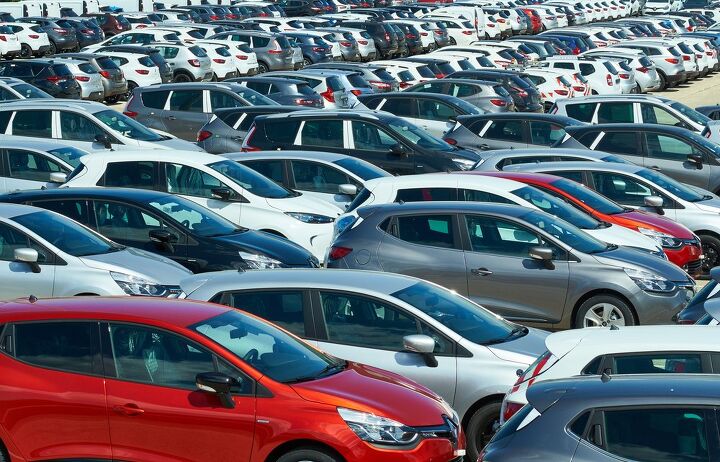


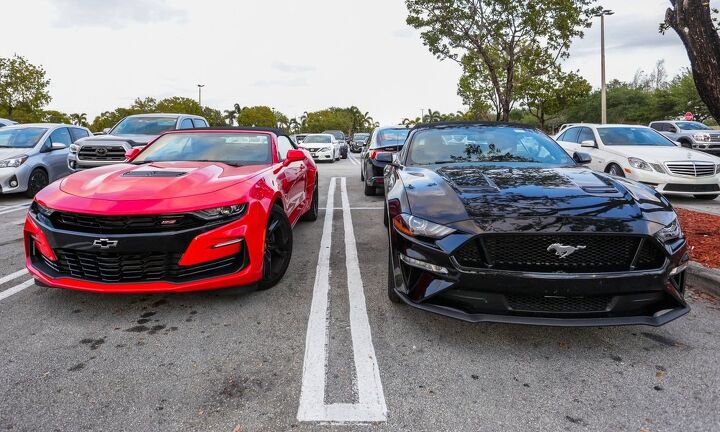
![The Hunt For BMW's New CEO Begins [UPDATE: That Was Fast!]](https://cdn-fastly.thetruthaboutcars.com/media/2022/07/19/9173916/securities-and-exchange-commission-interested-in-bmw.jpg?size=720x845&nocrop=1)


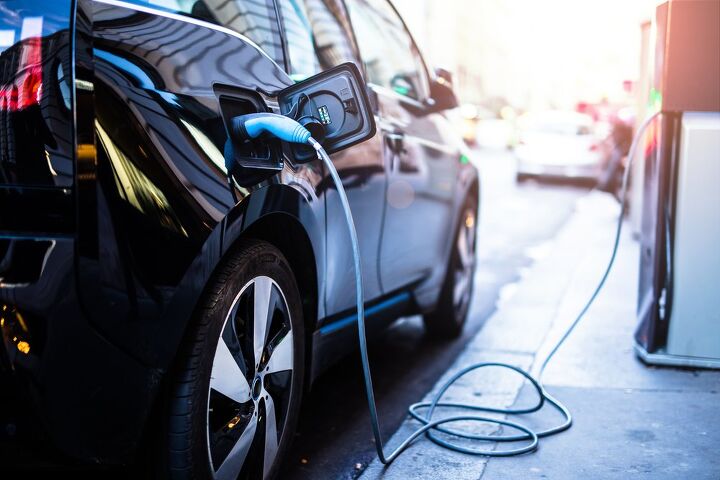
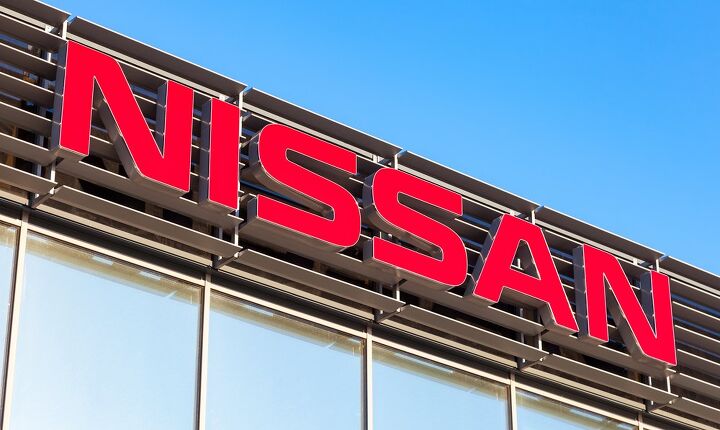

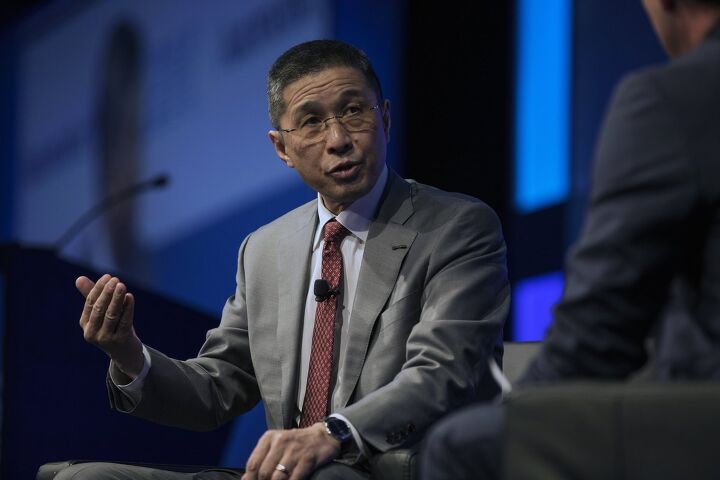

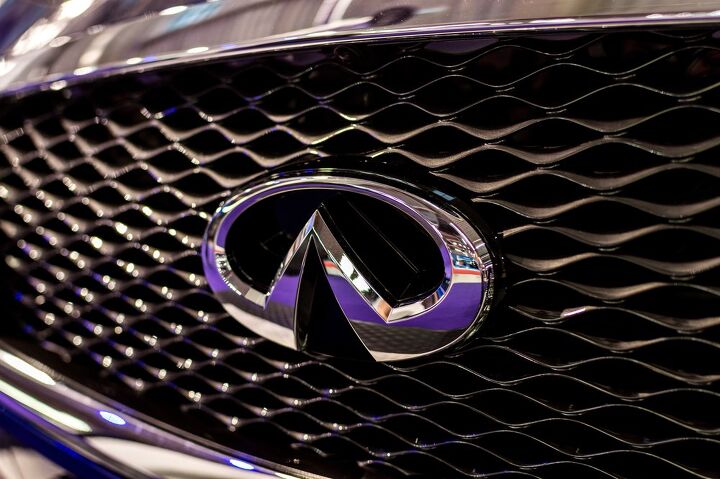

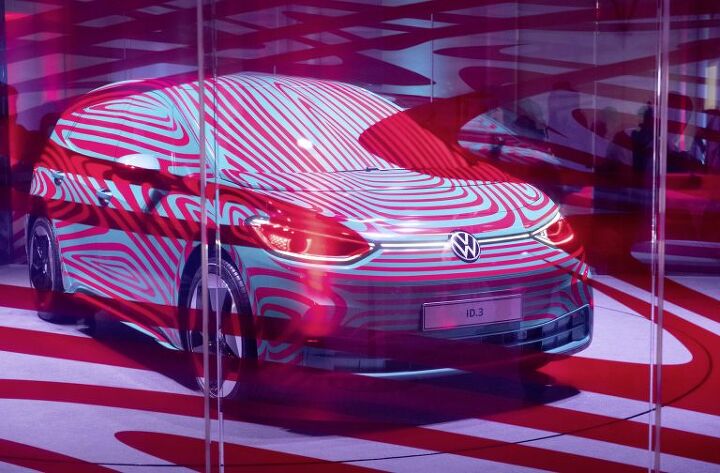












Recent Comments